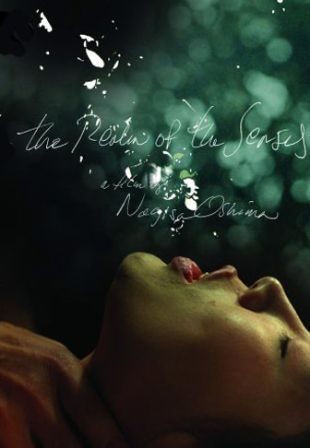
Shocking in its graphic sexual content and riveting in its portrayal of passion run amok, Nagisa Oshima's brilliant, notorious Ai no Korrida is a cinematic landmark. No film up to that time had seriously explored the potent gray area between art and pornography; in so doing, Oshima exposed and overturned many of the conventions of both. Like vintage Luis Buñuel, Oshima skewers expectations of "proper" art by shocking the audience; instead of Buñuel's slashed eyeballs and cross-dressing lepers, Ai presents the viewer with the actual act of sex. Oshima also exposes the voyeurism inherent in both pornography and cinema in general: virtually every sex scene (and there are many) is either witnessed by a third party or photographed through a window, so that the audience itself feels like a witness. Moreover, Oshima overturns heterosexual pornography's prevailing convention of women's serving men by having Ai's female protagonist dominate her willingly submissive lover. This story was based on a sensational true tale in which an ex-prostitute turned maid wandered the streets of Tokyo, clutching the dismembered organ of her lover after a particularly ecstatic round of lovemaking. She was quickly elevated into a folk heroine for Japan's nascent feminist movement, and least two other films based on her were made: Noboru Tanaka's masterful Jitsuroku Abe Sada (1975) and Nobuhiko Obayashi's post-modern Sada (1998). In Ai, Oshima focuses on how Sada and her lover and boss Kichi transgress all social conventions, from the hierarchical relationship between servant and master to even the distinction between male and female (Kichi at one point wears a woman's kimono and, by the film's end, Sada has a penis). Though Ai no Korrida can be viewed as part of the pinku eiga genre that was quite popular in Japan at the time, its graphic sexual content sparked a number of landmark censorship lawsuits. Sadly, it has never been seen in its native country in its unexpurgated form, though the film did garner much acclaim abroad and cemented Oshima's international reputation as one of Japan's master filmmakers. Though it has accured the musty-sounding title "film classic," Ai no Korrida has lost none of its subversive power to incite, offend, disturb, and arouse.
